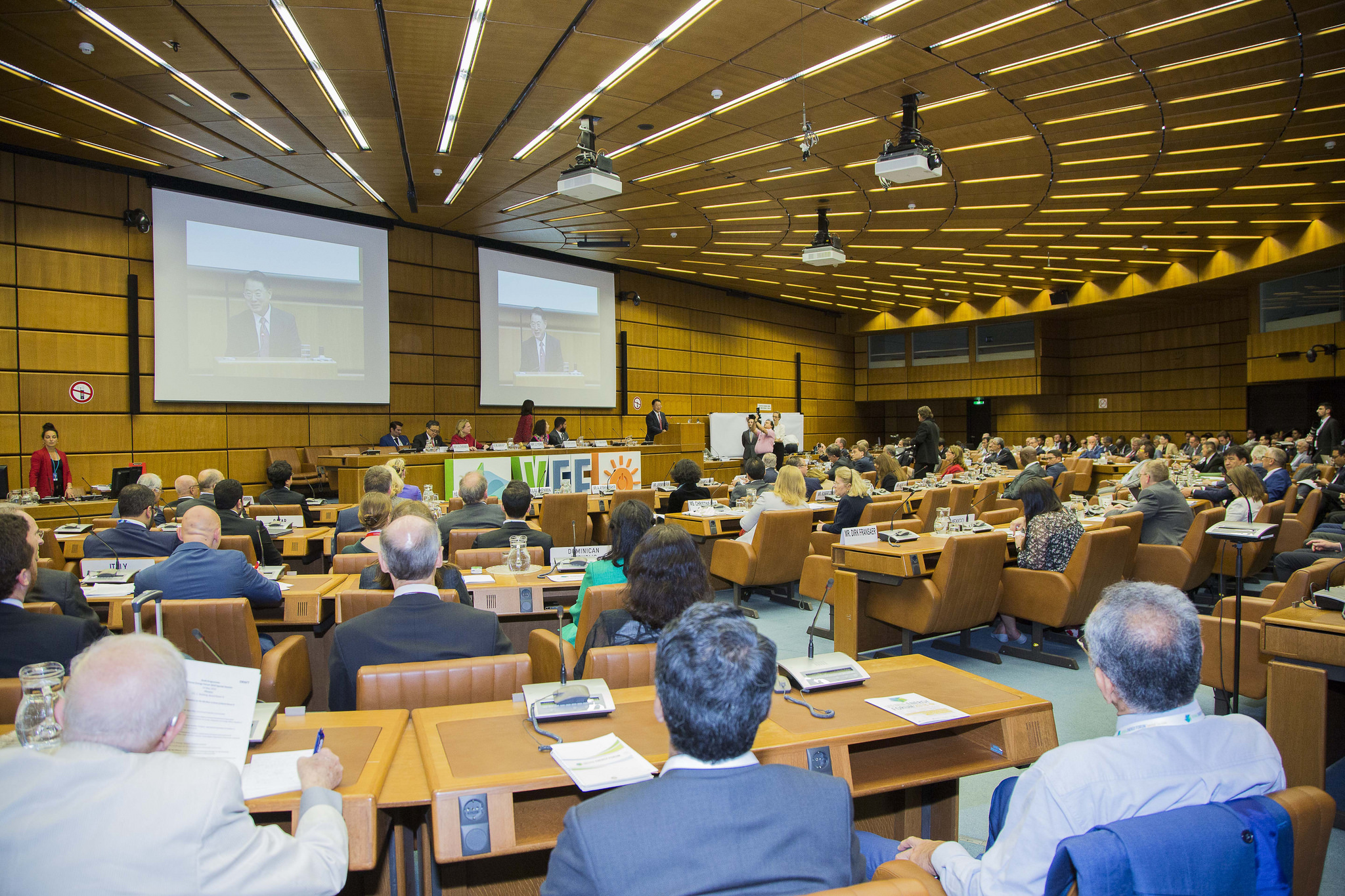The energy transition as an engine for prosperity
24 May 2018 Danilo DE OLIVEIRA PEREIRA

Two years after signing of the Paris Agreement, we are lagging behind. When it comes to acting against climate change, global leaders are found wanting. An international meeting to be held in July in New York represents an opportunity for change. The High Level Political Forum (HLPF) will bring global leaders together to discuss, amongst other topics, how we can speed up the global transition to sustainable energy sources.
In preparation for that meeting, state representatives and experts assembled in Vienna last week to evaluate how the industry can contribute to the energy transition. Since around 45 percent of final energy consumption comes from the sector, industry is key in bringing about the change we need. If nothing is done, industrial greenhouse gas emissions are set to increase by 50 to 150 percent by 2050. This will have a disastrous effect on climate.
The special session of the Vienna Energy Forum was held under the banner of “Powering Innovation for Prosperity”. The event was organized by the United Nations Industrial Development Organization (UNIDO), in partnership with the United Nations Department of Economic and Social Affairs (UN DESA), and in collaboration with Austria’s Federal Ministry for Europe, Integration and Foreign Affairs, the Austrian Development Agency (ADA), the International Institute for Applied Systems Analysis (IIASA) and Sustainable Energy for All (SEforALL).
Partnering for the transition
Participants agreed that we need to transform the ways in which energy is produced, consumed and transported everywhere, and we need to do it fast. Unless action is taken now, the prospect of curbing down emissions looks poor.
“It’s not that we have not been making progress, but we are willfully off the pace we need to be at and we have not achieved scale in most parts of the world,” said Rachel Kyte, CEO of Sustainanble Energy for All.
In order to have digitalized, decentralized and decarbonized energy systems, governments and companies need to step up. We need agile policies which create a favourable environment for cleantech companies to thrive. At the same time, we need more investment in research in order to come up with better, more efficient technologies.
That also means to stop thinking in terms of technology transfer and start talking about technology cooperation, said Tareq Emtairah, Director of UNIDO’s Energy Department. The question is how to co-create solutions, not transferring machines but knowledge, he added. His conclusion is that we need adopt long-term partnerships.
“We mean business.”
Once all was said and done, one aspect of the discussions stood out: the energy transition creates new business opportunities. That may very well be old news for more developed economies, but the same doesn’t hold true for developing nations which must be a part of that change.
Innovators in these countries must be supported so that no one is left behind. That means creating innovation systems around entrepreneurs and giving them the chance to take their products to the global market. It also means making sure there are fewer bureaucracratic obstacles to starting a company and that entrepreneurs have access to knowledge as well as finance.
“We need a new economic vision for the world,” said Jeremy Rifkin, advisor to the European Union and the People’s Republic of China. “We need a game plan to deliver that vision and it has to move as quickly in the developing world as in the highly industrialized world,” he added.
“The energy transition has to deliver prosperity,” said Tareq Emtairah. He emphasized the fact that new climate technologies combined with the urgent need for a low-carbon development path, are driving the growth of new green industrial sectors, creating new jobs and new opportunities.
Investment in climate and clean energy technologies in developing countries is expected to reach US$6.4 trillion over the coming decade, with US$1.6 trillion of that investment accessible to small businesses. Start-ups in developing countries can generate significant growth and create jobs by seizing the opportunities that come from the multi-trillion dollar investments in climate and clean energy technologies.
“We have a number of countries beginning to do the right thing and being rewarded for that,” said Rachel Kyte.
The way forward
Events led by the United Nations, like the Vienna Energy Forum, are essential for the climate process. Together, they are an important mechanism to get countries to do more. If we are to curb down emissions leaving no one behind, we will need action from the most committed, but also from those currently doing little or nothing.
The High Level Political Forum (HLPF) taking place in July will be an opportunity for leaders to review the future of global energy production.
Jeremy Rifkin told participants at the Vienna Energy Forum that the world needs to make a clean break with fossil fuels. “We have to be off a carbon-based civilization. Not low. Not clean. Off.”